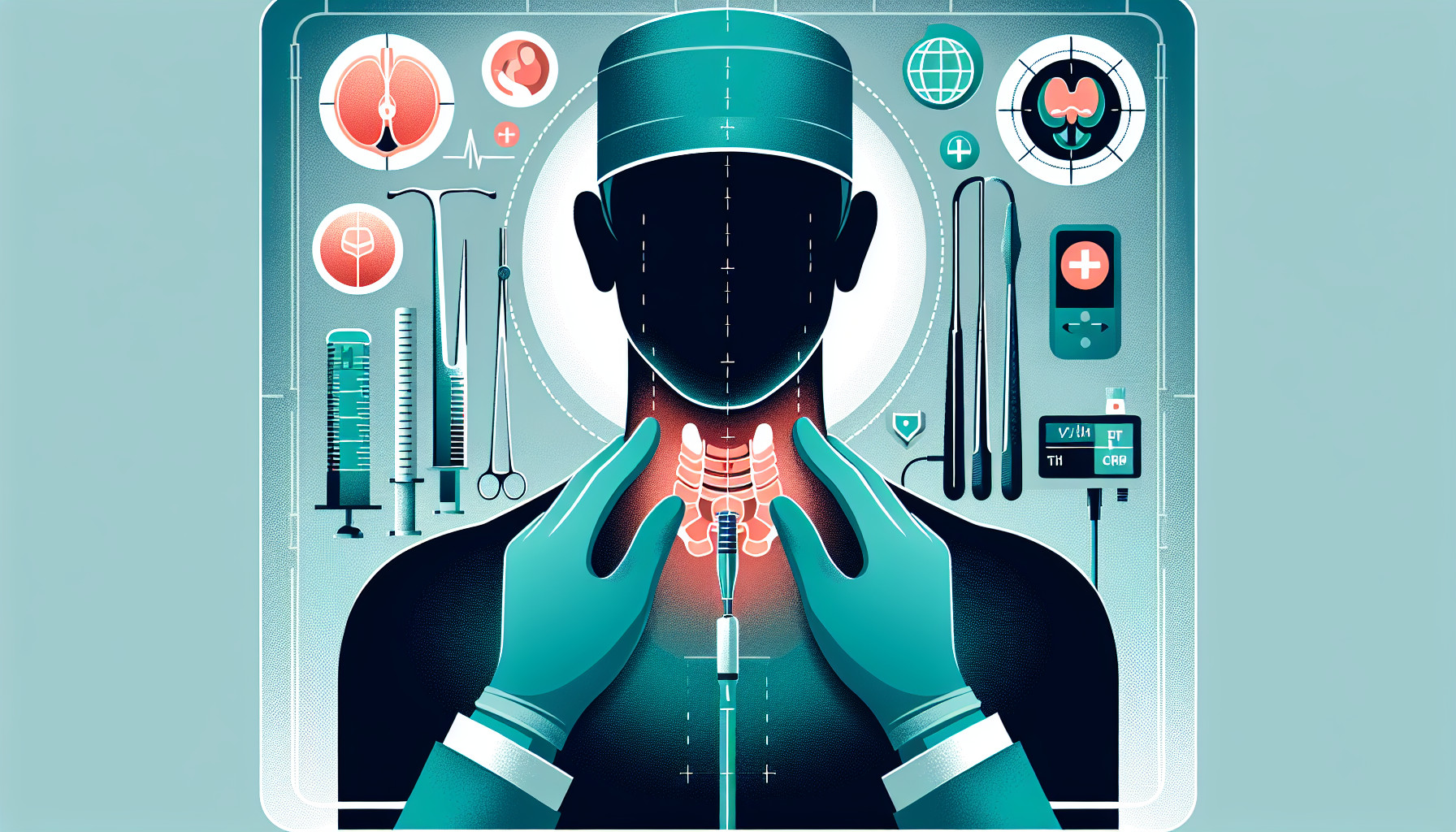Our Summary
The research paper is about a condition called tertiary hyperparathyroidism, which affects 25% to 50% of patients who have had a kidney transplant. This condition can be treated either through surgery (a parathyroidectomy) or with a medication called cinacalcet. However, there’s been some debate about which treatment is better, specifically in terms of how they affect the function of the transplanted kidney.
The researchers analyzed previous studies (a total of 18 studies with complete data) to see if they could find any clear trends. They looked specifically at changes in two measurements that are used to assess how well the kidneys are working: serum creatinine and estimated glomerular filtration rate.
After analyzing the data, they found that neither treatment appeared to significantly harm the function of the transplanted kidney. However, they also noted that there was a lot of variation between the different studies, which could make it hard to draw firm conclusions. They suggested that this variation might be due in part to the fact that there’s no agreed-upon definition for tertiary hyperparathyroidism.
FAQs
- What is tertiary hyperparathyroidism and how common is it among kidney transplant patients?
- What were the two main treatments for tertiary hyperparathyroidism discussed in the research paper?
- What were the findings of the research in terms of how the treatments affect the function of the transplanted kidney?
Doctor’s Tip
One helpful tip a doctor might tell a patient about parathyroidectomy is to carefully follow post-operative instructions, including any dietary or medication guidelines provided. This can help ensure a successful recovery and minimize any potential complications. It is also important to attend follow-up appointments to monitor kidney function and overall health.
Suitable For
Patients who are typically recommended for parathyroidectomy include those with severe hyperparathyroidism, those who have not responded well to medication treatment, and those experiencing symptoms such as bone pain, fractures, kidney stones, or high calcium levels. In the case of tertiary hyperparathyroidism following a kidney transplant, patients may be recommended for parathyroidectomy if they do not respond well to cinacalcet or if they experience complications related to their condition.
Timeline
Before parathyroidectomy:
- Patient may experience symptoms such as bone pain, muscle weakness, fatigue, and frequent urination.
- Patient undergoes diagnostic tests such as blood tests to measure levels of calcium, phosphorus, and parathyroid hormone.
- Diagnosis of tertiary hyperparathyroidism is confirmed.
- Patient discusses treatment options with their healthcare provider, including surgery (parathyroidectomy) or medication (cinacalcet).
- Decision is made to undergo parathyroidectomy.
After parathyroidectomy:
- Surgery is performed to remove the overactive parathyroid gland(s).
- Patient may experience some pain and swelling at the surgical site.
- Follow-up blood tests are done to monitor calcium and parathyroid hormone levels.
- Patient may need to take calcium and vitamin D supplements to maintain proper levels.
- Symptoms of tertiary hyperparathyroidism improve or resolve.
- Long-term follow-up is needed to monitor for recurrence of the condition.
What to Ask Your Doctor
What are the potential risks and complications associated with a parathyroidectomy surgery?
How will a parathyroidectomy affect my kidney function, specifically in terms of serum creatinine and estimated glomerular filtration rate?
Are there any alternative treatments to consider besides surgery, such as medication like cinacalcet?
How long is the recovery process after a parathyroidectomy surgery?
How will my overall quality of life be affected after undergoing a parathyroidectomy?
Are there any long-term effects or considerations I should be aware of after having a parathyroidectomy?
Will I need to make any changes to my diet or lifestyle after the surgery?
How often will I need follow-up appointments or tests to monitor my kidney function post-surgery?
What can I expect in terms of pain management and post-operative care following a parathyroidectomy?
Are there any specific factors or considerations, such as age or other medical conditions, that could impact the decision to undergo a parathyroidectomy for tertiary hyperparathyroidism?
Reference
Authors: Frey S, Goronflot T, Kerleau C, Gourraud PA, Caillard C, Hourmant M, Mirallié É, Figueres L. Journal: Surgery. 2021 Sep;170(3):727-735. doi: 10.1016/j.surg.2021.02.048. Epub 2021 Mar 30. PMID: 33810851
